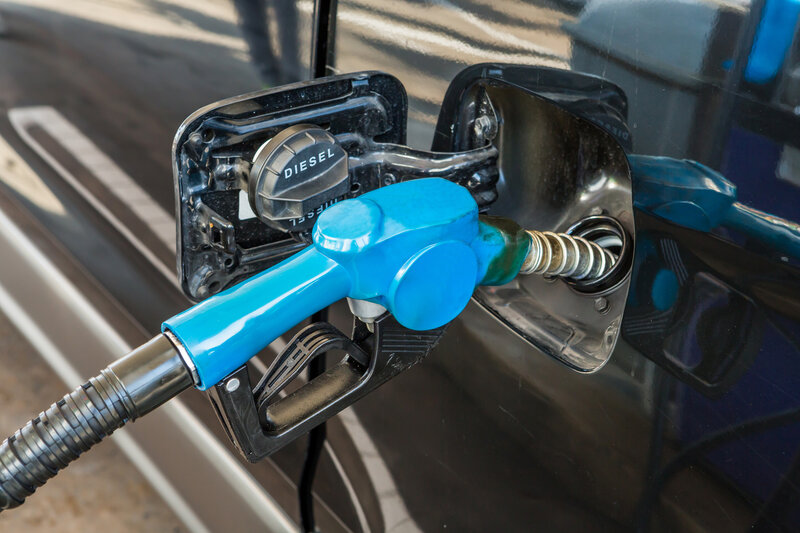
Most drivers ignore their fuel until it is time to fill up or until there’s an obvious problem with the fuel delivery system or the engine.
However, if you own a diesel vehicle, it’s in your best interest to always pay attention to the fuel. You need to know when the diesel composition in your vehicle is changing and when you can benefit from adding a diesel fuel additive.
As a reliable mobile mechanic in the Bay Area, we often advise diesel car, truck, or SUV owners on when to add diesel fuel additives to their vehicles. This article puts all the information you need in one place.
Unlike gasoline, diesel fuel needs additives because it contains more properties that need protection from external factors. Gasoline is a highly refined fuel, while diesel is heavier fuel that’s more prone to change over time, even in storage.
You must add diesel additives to protect its cold weather performance, stability, lubricity, and cetane rating.
You should add diesel fuel additive in the following scenarios:
Diesel burns more cleanly compared to gasoline. However, the combustion process still leaves residues that can turn into buildups that clog important parts like the fuel injector.
Fuel injectors and fuel filters are some of the most important parts of diesel engines. They aid the combustion process by delivering fuel to heated and compressed air. Deposits clogging the injectors will restrict the fuel delivery, giving you a reduced engine performance.
Without adding diesel additives to reduce the residues, you’ll likely have to pay for replacement parts over a short time.
Diesel fuel contains paraffin. As the temperatures drop to 32°F, it starts to crystallize. When the temperature drops to 11 to 15°F, the paraffin will turn to gel, clogging the fuel tank and the filters.
Adding anti-gel additives to your tank will lower the gelling point and improve your engine’s cold-weather performance. Here’s all you need to know about using diesel in cold weather.
You should also use diesel fuel anti-gel each time you fill the tank in the winter. To ensure a proper mix, always add the additive before you start to fill up the tank.
The low-sulfur diesel used today is good for the environment. However, the chemical method of sulfur removal and hydrogenation reduces the lubricating properties of diesel fuel. Thus, to prevent premature engine wear and tear, you need to use a lubricating diesel additive.
The right one can save you money and ensure you extract more miles from your diesel vehicle. Quality additives will increase lubrication and prevent corrosion. They will also reduce ignition delay by enhancing the fuel decomposition rate.
Diesel additives can help reduce fuel consumption in the following ways:
The confusion around diesel fuel additive is usually a result of a poor understanding of the different types of fuel additives and the benefits they provide to your engine. While anti-gel additives are popular, others are not. Here are some of them:
During refueling, diesel fuel tends to accumulate air, temporarily forming foam. For diesel vehicles with irregular-shaped tanks, the excess foam can cause premature fuel-cut off. Thus, you will have a half-filled tank if you’re refilling in a station that deploys automatic cut-off fuel dispensers.
Anti-foam additives reduce the surface tension in air bubble walls. The reduced tension causes them to burst quickly, eliminating foaming.
These additives help clean your fuel management system, especially the fuel injector. The additives act as a film on the metal surfaces of injector nozzles, preventing the accumulation of residues.
Keeping the fuel management system in good condition is a sure way to improve fuel economy, increase engine power output, and keep diesel engine emissions at satisfactory levels.
Diesel cetane number improvers help increase the cetane quality in your diesel fuel. Operating your vehicle with low-quality cetane diesel will make starting the vehicle more difficult, especially in cold weather.
Poor cetane quality also causes higher fuel consumption, higher noise levels, and more white smoke emissions. During consumption, cetane improvement additives help increase fuel decomposition rates. Thus, the fuel will ignite faster.
Whether you have a diesel vehicle or other heavy-duty diesel equipment, adding fuel additives can significantly increase its lifespan and improve performance. Knowing when to add a diesel fuel additive is a sure way to improve the fuel’s stability, especially when combined with regular and proper maintenance. Check out this post to learn about what to include in a heavy equipment maintenance program. Are you still unsure about the right type of diesel to use? Call All Bay Diesel at (925) 522-1780 to find out.